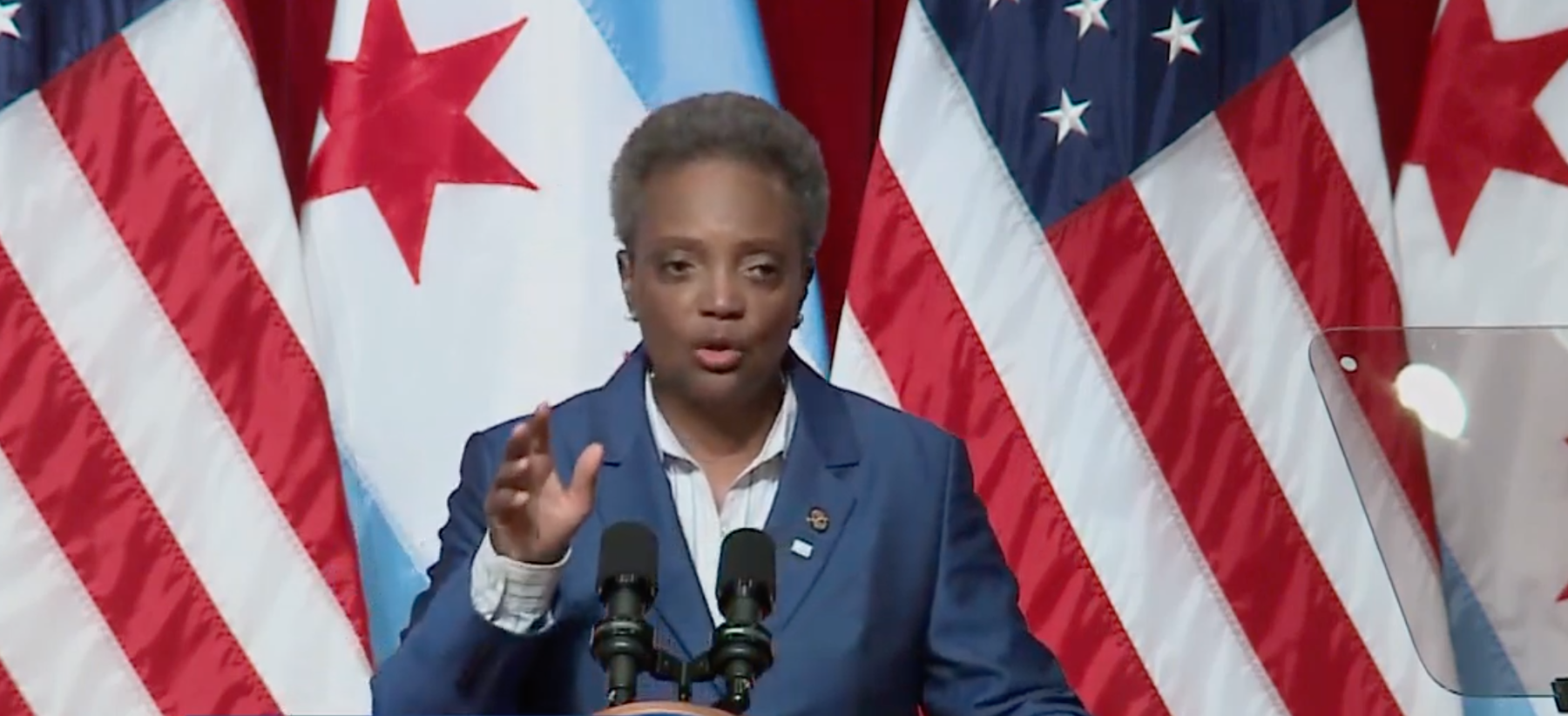In her first State of the City address, Mayor Lightfoot says she’s willing to sacrifice her political career to solve Chicago’s budget crisis. 
Tonight, Mayor Lori Lightfoot said she was willing to put her career on the line in order to solve Chicago’s budget crisis. In her first State of the City address, broadcast and live-streamed from the Harold Washington Library on Thursday, Lightfoot was clear that she intends to move quickly. “We have some hard choices to make; there’s no doubt about that and I will not sugarcoat it,” she said. “If that means I sacrifice myself politically… so be it.”
For the real estate community, it was a mixed bag. Lightfoot warned that real estate transfer taxes are coming, but she also expressed an intention to avoid raising property taxes.
“We are committed to a graduated real estate transfer tax,” she said, noting that homeowners whose properties are valued under $500,000 may get a break while those over that threshold “will pay more of their fair share.”
Lightfoot stressed that if the city and stakeholders can work to structure the forthcoming Chicago casino properly, they’ll be able to bring in thousands of new jobs, stem the tide of the estimated $200 million flow of gaming revenue to Indiana, and not tap into sources like increased property taxes. She also tied the need to deal with the looming pension crisis directly to homeowners. “I want to avoid that measure as much as possible, but if we don’t get to the structural changes that pensions need, we will be presented with very hard and limited options,” she said of property tax hikes.
Lightfoot also noted that when she took over the office, the three main options on the table for addressing Chicago’s financial woes were increasing property taxes, massive borrowing and shortchanging pensions, adding, “I fundamentally rejected all those approaches.”
The mayor also touched on her beliefs about how homeownership can stabilize and revitalize the city. “It means housing that’s affordable for Chicagoans so we can build wealth and create anchors in our neighborhoods,” she said. “Small businesses and homeowners … must be part of this strategy.”
Multiple times in the speech, Lightfoot made a commitment to transparency, and doubled down on her promise by releasing a budget forecast to provide a greater understanding of where the city stands today financially, immediately following the event.
She noted that when she took office, she inherited a projected deficit of $1 billion, but that with changes such as ethics reform, finding savings in the budget and borrowing, canceling contracts with vendors who aren’t delivering, and other cuts, her administration was able to reduce that to a gap of $838 million for 2020.
This is far from the end of the discussion, however. The mayor will make her formal budget address to Chicago City Hall in mid-October, which should provide many of the details for initiatives outlined in tonight’s speech.